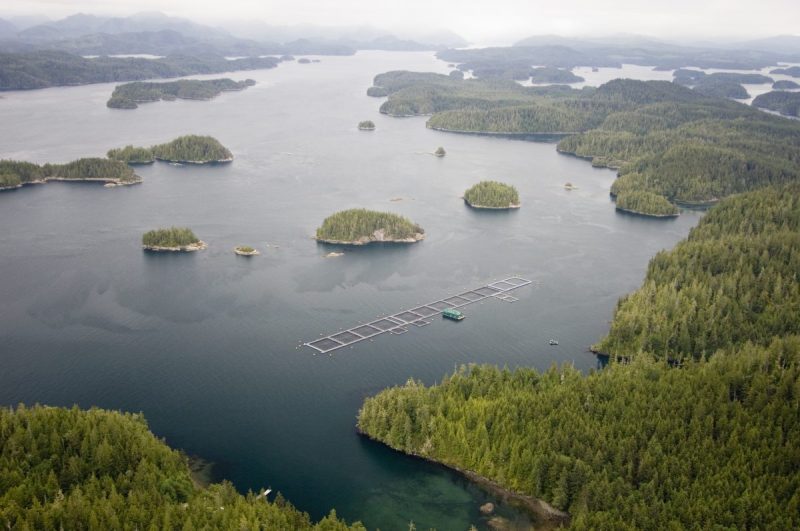Mowi reports escape incident involving 1,000 fish
Unlikely that the escaped fish will survive or colonise in the wild, say aquaculture and fisheries scientists
By SeaWestNews
Mowi Canada West is reporting that about 1,000 fish could have escaped from its Shaw Point brood-stock site near Campbell River after divers found a small net tear during a routine inspection.
“We found a small hole during our inspection on May 24 and reported the matter to the Department of Fisheries and Oceans and reached out to the First Nations in the area,” Dean Dobrinsky, director of human resources, safety and communications told SeaWestNews.
The We Wai Kai and Wei Wai Kum First Nations have called for the cancellation of Mowi’s licence to the Johnstone Strait site alleging they were delayed in getting a notification over the incident.
Dobrinsky said the company followed all protocols on reporting about fish escapes after the incident was discovered.
Last December, about 21,000 farmed fish escaped from Mowi Canada West’s Robertson Island pen off B.C.’s coast following a fire.
Most of the escaped fish, unaccustomed to living in the wild and unable to forage for their own food were easy prey for sea lions congregating near the fish farm.
Prior to the Robertson Island ocean pen fire, fewer than 100 Atlantic salmon have escaped from fish farms in B.C. over the past decade. The B.C. Salmon Farmers Association (BCSFA) said its members have a target of zero fish escapes and are constantly striving to prevent escapes and improve methods, equipment and procedures that can minimize or eliminate escapes.
Millions of Atlantic salmon have also been intentionally released into B.C. rivers and lakes, beginning more than a century ago and dozens of attempts were made to establish viable Atlantic salmon populations on the West Coast.
All the documented experiments concluded that no spawning populations had survived because farmed Atlantic salmon are poor colonisers when competing with wild Pacific salmon.
Here are some of the key elements established by the world’s leading aquaculture and fisheries scientists about farmed salmon escapes in the Pacific Northwest.
Interbreeding: Concerns about crossbreeding/ interbreeding farmed salmon (Atlantics) with wild Pacific stocks in the event of escapes are unfounded. Over the past 40+ years, hatchery scientists made many attempts to interbreed these different species; all were unsuccessful.
Competition for food: Concerns about farmed salmon taking over habitat, if, and when, they escape, are unfounded as well. Again, peer-reviewed studies have shown convincingly that “captive” or pen-reared salmon have not learned how to “hunt” for food, simply because they are used to being fed on a regular timetable. Atlantic salmon, in particular, appear to be non-competitive with local species. Moreover, when the stomachs of “escaped” Atlantic salmon are examined, they have been found to be empty. In B.C. over the last decade, fewer than 100 fish have escaped from salmon farms each year.
Habitat invasion: Scientists to date have found no evidence of Atlantic salmon spawning on the West Coast of North America. Canada’s Department of Fisheries (DFO) has consistently maintained that there is an extremely low likelihood of Atlantic salmon becoming established in B.C. waters.
Disease transmission: Salmon in an aquaculture setting are raised in a certified disease-free hatchery, then vaccinated against saltwater disease, and certified disease-free before they are moved to net pens.
(Image: one of Mowi Canada West’s farms in BC)

